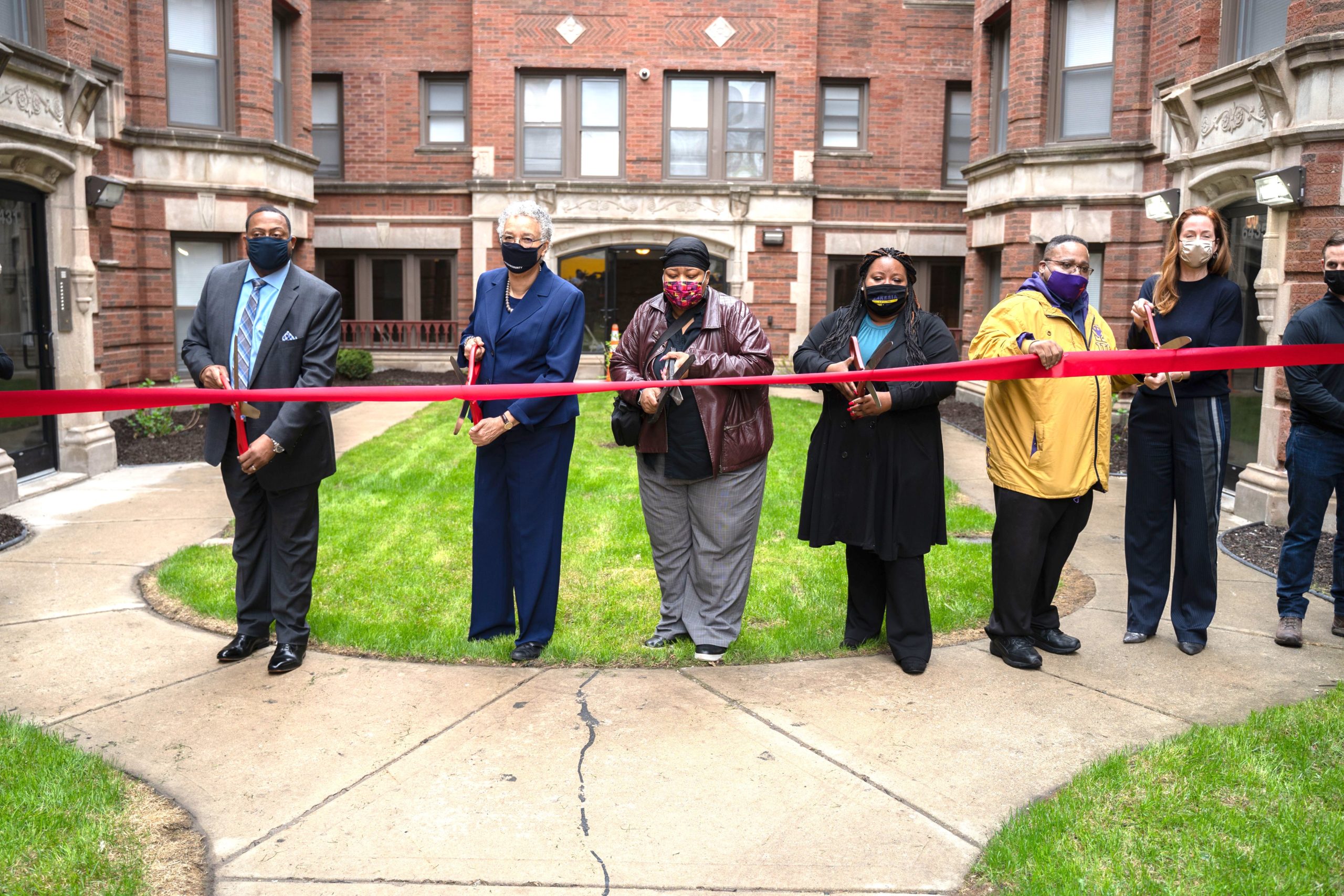Declaring it time to put an end to a system that perpetuates redlining and the growth of vacant properties, Cook County Board President Toni Preckwinkle recently announced she is joining the Cook County Land Bank Authority, Cook County Clerk Karen Yarbrough, and Cook County Commissioner Bridget Gainer in calling for reform of the Cook County Scavenger Sale, a limit on interest rates charged to homeowners under a county lien, and a new strategic plan to recover and revitalize blighted communities.
“The county has a responsibility and should have the power to help communities with abandoned properties,” Preckwinkle said. “We can do this at scale and faster than the antiquated system that serves short term profits over sustainable community growth and affordable housing. We need a simple change in the law to allow us to harness the creativity from partnering with the city, local communities and local developers.”
Preckwinkle joined other city and suburban leaders to support the systemic reforms proposed in the “Homeowner Relief and Community Recovery Act.” The bill will empower com- munities and local governments to transform vacant properties into homes and put them back on the tax rolls while helping residents stay in their homes by reducing predatory interest rates.
They announced their support for the proposal at the ribbon cutting for a newly renovated, multi-unit apartment building that had languished vacant for 15 years, harboring illegal activity and dragging down surrounding property values in Chicago’s Englewood neighborhood. The Land Bank and a local developer transformed 6429 S. Stewart Ave. into 42 units of affordable housing.
“A recent University of Chicago study concluded the Scavenger Sale is failing at the goal of returning tax delinquent properties to the tax rolls,” Gainer said. “Today’s ribbon cutting shows the promise of reform to the system. The rehab of this building created jobs and economic opportunity for the city and county and will create affordable housing for Englewood. But it should not have taken 15 years and endless state-mandated bureaucracy. Neighborhoods need this legislative reform, and we look forward to working to achieve the Land Bank’s and President Preckwinkle’s vision for revitalizing communities at scale.”
Along with lobbying for passage of the reform bill, Preckwinkle announced the Cook County Bureau of Economic Development, through its Community Recovery Initiative, will make rapid revitalization of blighted Cook County communities a top priority and work with the Land Bank and Yarbrough. Future reforms could also consider a bill that would end the state requirement for a biennial sale and instead put it at the discretion of the Cook County Treasurer.
Across the state, residents have been hit hard by the pandemic. As residents struggle to keep up, State law is putting some residents at risk of losing their homes. But the Homeowner Relief and Community Recovery (HRCR) Act creates protections for homeowners and helps municipalities and affordable housing entities rescue abandoned properties and remove the blight that disproportionately impacts communities of color.
“The Stewart building is an example of how the cycle of disinvestment and blight hurts communities, but it also demonstrates the positive impact on neighborhoods when we reduce vacancy and redevelop properties to address community needs,” State Rep. Lakesia Coll-
ins said.“That’s why I am sponsoring the HRCR Act, with State Sen. Steve Stadelman. The HRCR Act will reduce the number of vacant and abandoned properties by making it easier to reclaim homes for homeowners, and it will give local governments the tools to salvage properties like the Stewart building.”
When homeowners in Illinois fall behind on property taxes, the penalties and interest – up to 18%, assessed every 6 months – can make it almost impossible for them to catch up on missed payments. Tax delinquency and escalating fines often drive vacancy and abandonment. Abandoned, tax delinquent properties like the Stewart building can take years to reclaim – even when all parties agree and no owner claims the property. These vacant buildings create blight and depress the tax base.
The HRCR Act attacks the cycle of abandonment and disinvestment in key ways. It changes tax penalties from a predatory rate, making it easier for homeowners to pay delinquent tax bills; and it helps municipalities save abandoned properties more quickly, stopping the cycle of vacancy, blight, crime and disinvestment as exemplified by the Stewart building.
“This legislation also allows municipalities and counties to partner with another government agency to manage properties that threaten public health, safety and welfare,” said Yarbrough. “As a committed leader of Maywood and the county clerk, I know how important that is.”
Cook County Land Bank Executive Director Rob Rose called for lawmakers to pass the HRCR bill.
“We are thrilled to work with WPD Management and the City of Chicago’s Troubled Buildings Initiative to turn the Stewart building into affordable homes,” Rose said. “And we hope that legislators will give homeowners a fighting chance to pay their tax bills and allow municipalities to transform more abandoned buildings into viable homes and businesses. Every vacant home was once someone’s treasure, and this legislation will revitalize more of our treasured neighborhoods, help homeowners and stabilize Illinois communities.”






